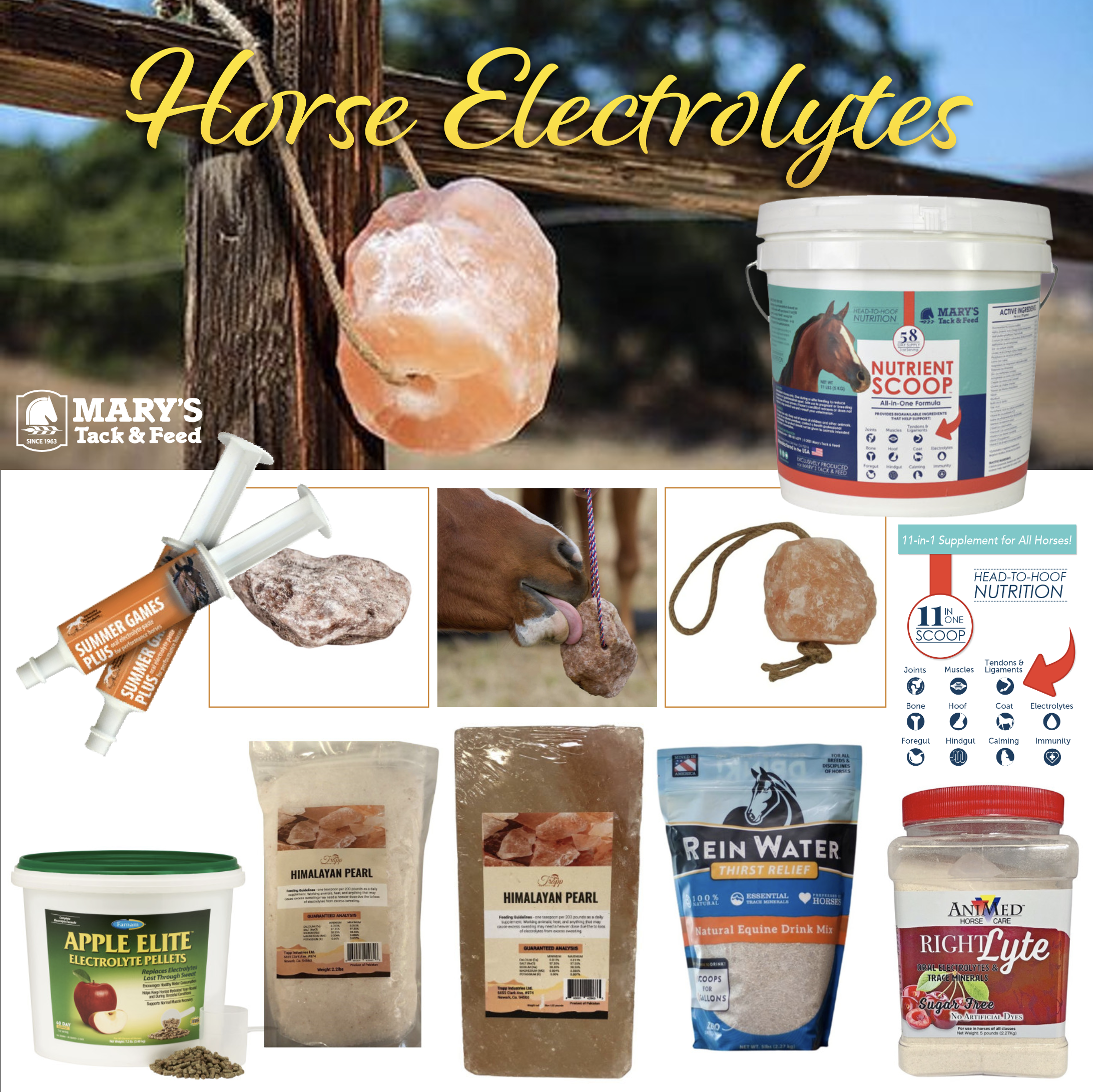Do Horses Need Salt?
Posted by Mary's Tack & Feed on 2nd Aug 2023
Keeping your horse happy and healthy requires quite a bit of knowledge and care. Salt intake is one area of equine health maintenance that should not be overlooked. The amount of salt a horse consumes each day impacts its short-term and overall health. Learn more about why it is so important to provide salt for your horse and the best ways to do it.
Why Do Horses Need Salt?
Salt is an essential electrolyte in a horse’s body. When a horse sweats, it loses a large amount of this essential mineral. If salt consumption is not increased to make up for that loss, the horse can develop an electrolyte imbalance that could potentially cause symptoms dehydration, low blood pressure and reduced muscle coordination. Over time, salt deficiencies can even lead to cardiovascular or neurological problems.
How Much Salt Do Horses Need?
Most horses need about two tablespoons of salt per day, which equals approximately 25 grams.
However, various factors can affect how much salt an individual horse requires. Horses often require more salt in warmer climates and during the summer months due to the hot weather causing them to sweat more frequently. Horses with moderate to high workloads will likely require more salt than those which are not performing strenuous activities. It’s also important to check the salt intake in their feed when considering how much salt a horse requires.
What Is a Salt Block for Horses?
One of the most popular ways to provide salt for horses is with a salt block. This allows the horse to lick or nibble at the block as desired. It’s also a convenient and low-maintenance option that only needs to be replaced once every month or two depending on the number of horses with access to the block. A great example is this Himalayan Rock Salt, which is conveniently attached to a piece of rope for easy hanging in stables or pastures.
Are Salt Blocks Good for Horses?
Salt blocks are great for horses which self-regulate when it comes to their salt intake. Most horses are able to maintain healthy electrolyte levels through this method.
However, there are some situations in which it’s better to directly control a horse’s salt intake by adding it to their feed, such as:
- A horse that licks salt blocks excessively, causing them to consume much more salt than they need
- One horse being territorial about a salt block in a shared pasture, restricting access for other horses
- Very cold temperatures, in which the salt block is less inviting to lick
- Horses that attempt bite the salt block, which could cause damage to the teeth or jaws
If it’s your horse’s first time using a salt block, be sure to monitor their use more closely at first to make sure none of these issues are at play.
Where to Buy a Salt Block
Salt blocks for horses are available at Mary’s Tack and Feed. Check out this Redmond Rock Salt, which is mined and packaged in the U.S. and available in multiple sizes. While blocks like this may be placed in feed bucket, on a stall mat or in the grass of a pasture, you may also want to invest in a Salt Block Holder to give your horse easier access.
See ALL Salt and Electrolyte options.



